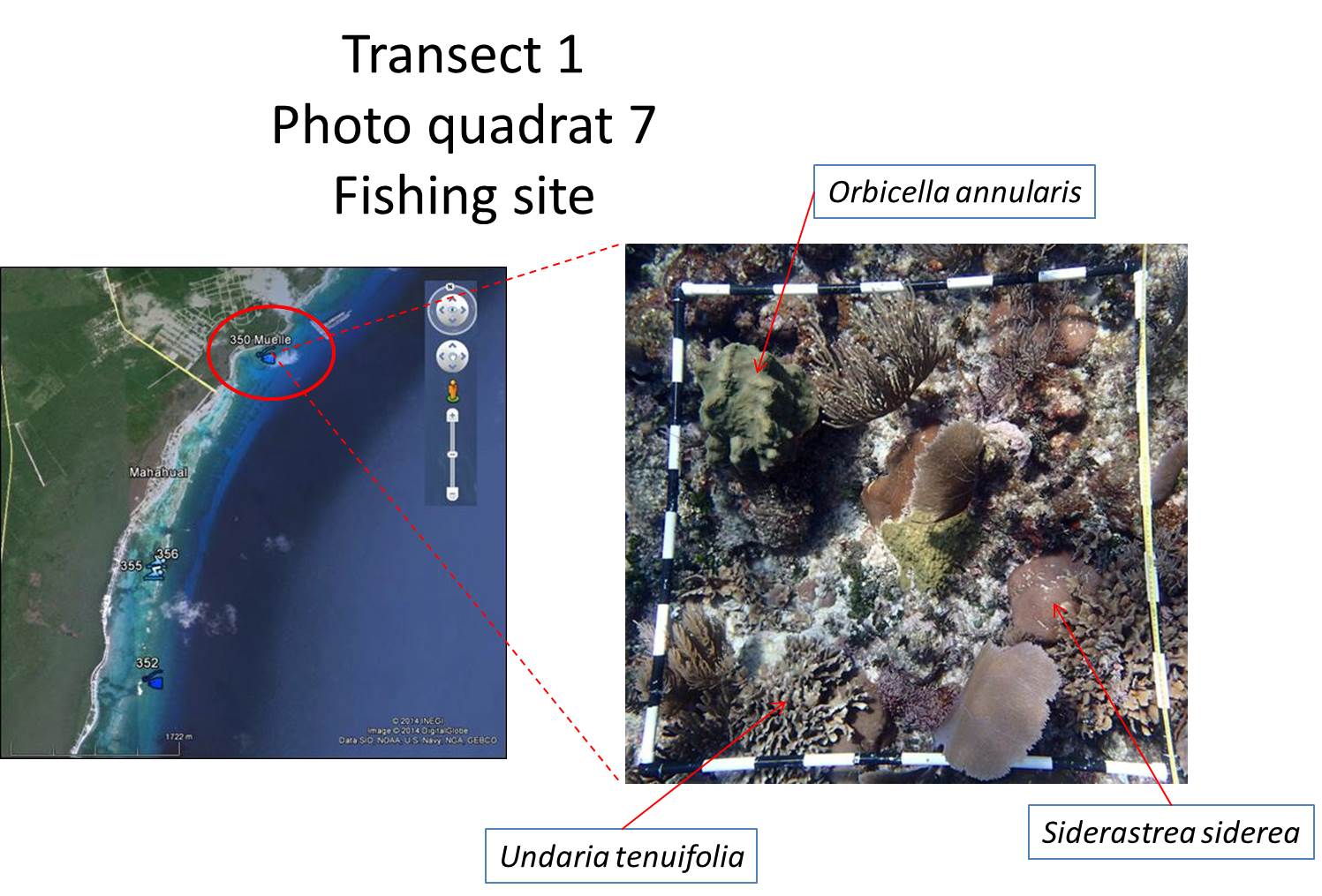Mahahual
Mahahual, Q.R., México
Mahahual, Quintana Roo, Mexico, is a small coastal village located in the south of the Mexican Caribbean coast. It is known for its beautiful natural landscapes and has among the healthiest coral reef ecosystems. However, the rapid expansion of tourism activities threatens the ecosystem’s integrity. Fortunately residents, particularly tourism service providers, are aware of the danger and are willing to protect their natural resources on which their economy depends. Stony coral, one of the most attractive reef taxonomic groups, is of great importance for its reef-forming nature. Thus, it is important for local users (tourism service providers) to recognize its ecological value, monitor the state of the stony coral, and to implement conservation actions.
Top environmental challenge faced by the community (currently or in the past 10 years):
The coral reef ecosystem found in Mahahual belongs to the second largest barrier reef in the world (after the Great Barrier Reef in Australia). This reef is located in the Caribbean Sea off the coast of Quintana Roo and Belize, and has an enormous biodiversity that maintains the dynamic balance of the ecosystem and the local economy, in particular through tourism activities. However, Mahahual faces a number of challenges that threaten the community's economy and livelihood. Some of those challenges are hurricanes, over fishing, uncontrolled increase in tourism and deterioration of the coral reef ecosystem.
How the environmental challenge has affected local livelihoods:
Hurricane Dean, a category 5 hurricane, landed on August 21, 2007 in Mahahual. The community was seriously affected by its impact as 80% of the buildings and infrastructure were destroyed, as well as extensive damage was done to the wetland (mangrove swamp), affecting economic activities in general.
Community response to the challenge, through environmental stewardship (conservation) initiatives that improve environmental well-being and support sustainable livelihoods:
Local residents have faced many important challenges, such as Hurricane Dean, and are the main force in the village. Mahahual was rebuilt and enabled to offer services for visitors interested in knowing about this small town. Residents worked hard to recover and rebuild Mahahual, which includes the public beach, and a beach boulevard of about 1700 m with many attractive services. In 2015, abnormally extensive seaweed volumes arrived to the beach obstructing access to the sea, diminishing the tourism value of the beach and hindering tourism related activities. In a good collaboration among residents and local government, the problem was faced through beach cleaning programs. Although the issue was naturally solved, the beach cleaning programs had high levels of community participation and acceptance, encouraging community coordination and integration.
Extent to which governmental policy (at local, regional or national levels, as relevant) has supported, or been contrary to, the community's responses to the environmental challenge:
The sargassum issue was a regional problem through the Caribbean coast. In Mahahual, the beach lost its tourist attraction, because virtually all sources of income in the community are related to tourism. This situation threatened (affected) local livelihoods. In response, the federal government activated a temporary program to hire people to collect and remove the sargassum accumulated on the beach. Despite being a temporary top-bottom program, it encouraged community participation and empowered the residents. Nevertheless, once the situation naturally ended, the government closed the program, leaving the community without any official action to foster environmental care.
Keywords: Ecosystem
Coastal
Keywords: Resources
Fish
Keywords: Big Issues
Biodiversity, Climate change, Pollution, Resource use, Urbanization
Keywords: Solutions
Empowerment, Governance/Management, Policy and planning, Public participation
Contributed by: Alfonso Cuevas Jimenez, Marist University of Merida
The information provided and opinions expressed above are the responsibility of the contributor and do not necessarily reflect the views and analysis of the Community Conservation Research Network (CCRN), nor those of all members of the community described.
For any questions or comments on Communities in Action, please contact us
here.



